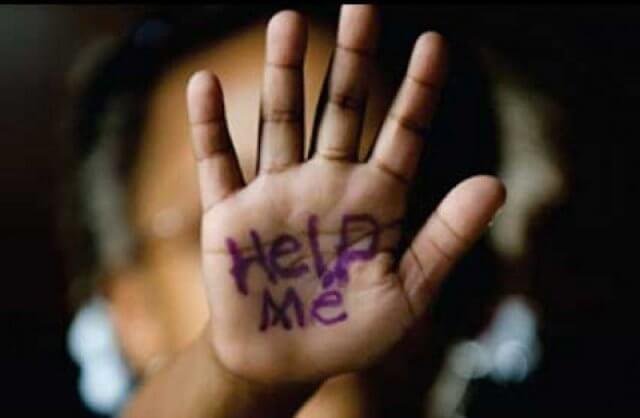Sexual abuse against children cuts across all societies like cancer. It happens in schools, homes, religious organisations and communities. Recent reports on these cases leave a lot of room for worry and signals a cry for the government to take deliberate actions to address the root of the problem, writes Juliet Jacob Ochenje.
A Pervasive Threat to Vulnerable Children
While instances of rape across all age groups are on the rise, the sexual defilement of children appears to be escalating at a more alarming rate, as reports of child rape proliferate the media.
Increasingly, Nigerian children grapple with multiple adversities. According to the United Nations International Children Fund (UNICEF), six out of every 10 children experience some form of violence, with one in four girls and 10 percent of boys falling victim to sexual abuse. But only five in 100 abused children receive support and counseling, it said.
The World Health Organisation (WHO) defines Child Sexual Abuse (CSA) as the involvement of a child in sexual activity that he or she does not fully comprehend, is unable to give informed consent to, or for which the child is not developmentally prepared and cannot give consent, or that violate the laws or social taboos of society.
In August, news outlets detailed the harrowing case of a four-year-old pupil allegedly raped by James, a security guard at a private school in Ajah, Lagos. Earlier, in July 2023, a 37-year-old farmer, Joseph Agbomu, received a life sentence from an Akure High Court for defiling his neighbor’s six-year-old daughter in Ondo State.
The recent disclosure by the Lagos State Government of domestic violence cases state-wide, revealing that 2,588 minors were sexually and emotionally abused between August 2022 and July 2023, is profoundly disturbing. It underscores how sexual defilement, particularly of minors, is reaching epidemic proportions in the country.
In April, a 70-year-old man, Usman Ibrahim, was reported to have raped two minors aged four and seven in Jimeta, Yola North Local Government Area, Adamawa State. Ibrahim lured the girls into his room and abused them while en route their extra lesson class. In another disturbing incident which occurred in November 2022, Musa Gambo, aged 75, was arrested by Nigeria Security and Civil Defence Corps (NSCDC) operatives for allegedly raping his six-year-old grandniece in Gandun Sarki Quarters, Malam Madori LGA, Jigawa State.
In 2022, there were 1159 cases of rape and other forms of sexual violence against children, with 38 verified cases, marking a 12% decrease from 2021. Notably, girls comprised 98% of verified and recorded child survivors of sexual violence in 2022, a consistent pattern over the years.
The role of culture, tradition in sexual violence against minors
The detrimental practice of child marriage, particularly prevalent in the North, must be eradicated, as it hampers the potential of young girls, distorts their psyche, damages their physical well-being, and impedes their education.
Girls not Brides, a non-governmental organisation (NGO), disclosed that 43 percent of Nigerian girls are married before their 18th birthday, and 16 percent before their 15th, legitimising sex with minors.
The Gender Desk Officer of Bwari Area Council in Abuja, Mr. A. A Ahmad, also shared some factors escalating this problem in an interview with African Health Report (AHR). He highlighted that sexual violence against minors often stems from mental health issues, alcoholism and pornographic movies. He also noted that child marriage also contributes to sexual violence against minors.
He stated, “Sexual violence against minors is a form of violence perpetuated against minors which is one of the forms of violence against persons. Most times, what causes it is mental health issues, alcoholism and ponographic movies. Child marriage also contribute to sexual violence against minors.
“Child sexual abuse appears to be more common in females than males, usually occurs in settings the child is familiar with, and most abusers are known to the children before the onset of the abuse. Circumstances associated with such abuse include poverty, ignorance, poor education and unstable homes, environments.
“The violation of the rights of children comes in many forms; violence, child labour, trafficking, sexual exploitation, female genital mutilation, child marriage, amongst others.”
Need for action against
The Child Rights Act is a federal law that provides wide-ranging protection for the rights of children in Nigeria. 34 out of the 36 states of the federation have adopted the law, according to the immediate past Minister of Women Affairs, Dame Pauline Tallen.
It covers various aspects of child protection, including provisions against child trafficking and abuse. It prohibits child marriage, child betrothal, infliction of tattoos, exposure to use, trafficking, abduction, and unlawful removal and transfer of a child from lawful custody, forced, exploitative or hazardous child labor or using children for prostitution, unlawful sexual intercourse, other forms of sexual abuse and exploitation prejudicial to the welfare of the child.
However, enforcement of the law remains a challenge, one that must be surmounted to protect children from sexual predators.



